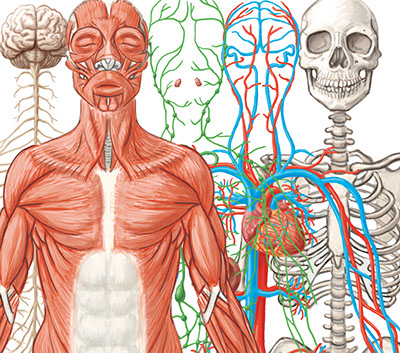Born Healthy, But Getting Sick? What Your Food Is Doing to Your Organs
NEUROSCIENCEALL BLOGS


You were born healthy. But now maybe you’re tired, bloated, gaining weight, or dealing with blood pressure, skin issues, or mood swings.
What changed?
The answer is simple but powerful:
When you eat the wrong food, in the wrong amount, and at the wrong time, your organs slowly lose their balance.
You don’t feel it right away. But over time, these habits wear out your body from the inside.
Here’s what really happens, organ by organ.
Brain
Too much sugar causes brain fog, anxiety, and poor focus. Without enough healthy fats or vitamins, memory and mood drop. Late-night eating also affects sleep and brain recovery.
Science shows sugar reduces blood flow to the brain and shrinks memory centers like the hippocampus. A 2019 study in Nutritional Neuroscience linked high sugar to poor memory and depression.
Heart
Processed foods and sugary food raise blood pressure and cholesterol. Inflammation from a poor diet stiffens blood vessels. Overeating makes your heart work harder than it should.
The Framingham Heart Study linked poor diet to early heart disease. Circulation (2021) reported that salt and ultra-processed food raise the risk of heart attack.
Liver
Your liver breaks down toxins and turns food into energy. But too much sugar, especially fructose from soda or juice, turns into liver fat. Constant snacking blocks the liver’s natural detox cycle.
A 2022 Hepatology study linked sugary drinks to fatty liver disease in teens. The liver needs time to rest and reset, especially overnight.
Stomach
Big, heavy meals stretch the stomach and delay digestion. Eating too late at night can cause acid reflux. Poor food choices weaken stomach acid and cause bloating.
The American Journal of Gastroenterology found that high-fat meals increase heartburn and slow digestion.
Intestines (Gut)
Low-fiber diets slow digestion. Junk food damages the good bacteria in your gut. Chemicals in processed foods inflame the gut lining.
A 2015 Nature study found that artificial sweeteners harm gut bacteria and raise blood sugar. The American Gut Project confirmed that eating many types of plant foods improves digestion and immunity.
Pancreas
This organ releases insulin to manage blood sugar. Too much sugar makes the pancreas work overtime. Over time, insulin becomes less effective, leading to insulin resistance and diabetes.
A 2020 Diabetes Care study showed that reducing processed carbs improved insulin function in prediabetic people.
Kidneys
Kidneys filter waste from your blood. But high salt, sugar, and low water intake put stress on these filters. Ultra-processed food and poor hydration reduce kidney performance over time.
A 2023 study in Nephrology Dialysis Transplantation found early signs of kidney damage in teens who ate mostly processed diets.
Skin
Skin is the mirror of your inner health. High sugar stiffens collagen, causing wrinkles. Dairy and junk food can trigger acne. Low fiber, low hydration, and gut imbalance make skin dull or inflamed.
Common skin problems caused by poor eating include:
Acne and oily skin
Dry, flaky patches
Dull or uneven tone
Eczema and redness
Hives or rashes from food sensitivities
Early aging and wrinkles
Dark circles and puffiness
Rosacea flare-ups
Slow wound healing
Science confirms this. A 2019 article in the Journal of Clinical and Aesthetic Dermatology linked high-glycemic diets to acne. A study in Dermato-Endocrinology showed sugar causes collagen damage through AGEs. A 2020 review in Nutrients connected poor gut health to eczema and chronic skin inflammation.
What to do instead
Eat mostly real food: fruits, vegetables, legumes, nuts, yogurt, clean protein
Drink water instead of juice or soda
Avoid processed snacks, added sugars, and seed oils
Stop eating 4 to 5 hours before bed
Eat for your organ, not for your desire or taste buds’
Walk after meals to support digestion
Sleep early so organs can repair
Give your gut a break: aim for 12 hours between dinner and breakfast
Final thought
You’re not broken. But your organs may be overwhelmed. If you were born healthy, you can stay that way, but only if you feed your body what it was designed to use. Every meal is either a message of healing or harm. The power is in your hands. Heal your body one bite, one habit, one day at a time.